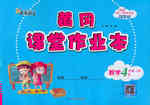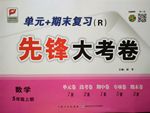题目内容
D
It was a winter morning, just a couple of weeks before Christmas 2005. While most people were warming up their cars, Trevor, my husband, had to get up early to ride his bike four kilometers away from home to work. On arrival, he parked his bike outside the back door as he usually does. After putting in 10 hours of labor, he returned to find his bike gone.
The bike, a black Kona 18 speed, was our only transport. Trevor used it to get to work, putting in 60-hour weeks to support his young family. And the bike was also used to get groceries(食品杂货),saving us from having to walk long distances from where we live.
I was so sad that someone would steal our bike that I wrote to the newspaper and told them our story. Shortly after that, several people in our area offered to help. One wonderful stranger even bought a bike, then called my husband to pick it up. Once again my husband had a way to get to and from his job. It really is an honor that a complete stranger would go out of their way for someone they have never met before. People say that a smile can be passed from one person to another, but acts of kindness from strangers are even more so. This experience has had a spreading effect in our lives because it strengthened our faith in humanity(人性) as a whole. And it has influenced us to be more mindful. No matter how big or how small, an act of kindness shows that someone cares. And the results can be everlasting.
53. How did people get to know the couple’s problem?
A. From radio broadcasts. B. From a newspaper.
C. From TV news. D. From a stranger.
54. Which of the following is TRUE?
A. The author used to get to work by bike.
B. Several strangers offered bikes to them, but they only accepted one of them.
C. The author’s husband often parked the bike outside the back door.
D. Somebody had stolen their bike before, but soon returned it to the author.
55. What do we learn from the couple’s experience?
A. An act of kindness can mean a lot. B. One should take care of their bike.
C. News reports make people famous. D. Strangers are usually of little help.
56. Why was the bike so important to the couple?
A. The man’s job was bike racing. B. It was their only possession.
C. It was a nice Kona 18 speed. D. They used it for work and daily life.
53---56 BCAD

 黄冈课堂作业本系列答案
黄冈课堂作业本系列答案 单元加期末复习先锋大考卷系列答案
单元加期末复习先锋大考卷系列答案